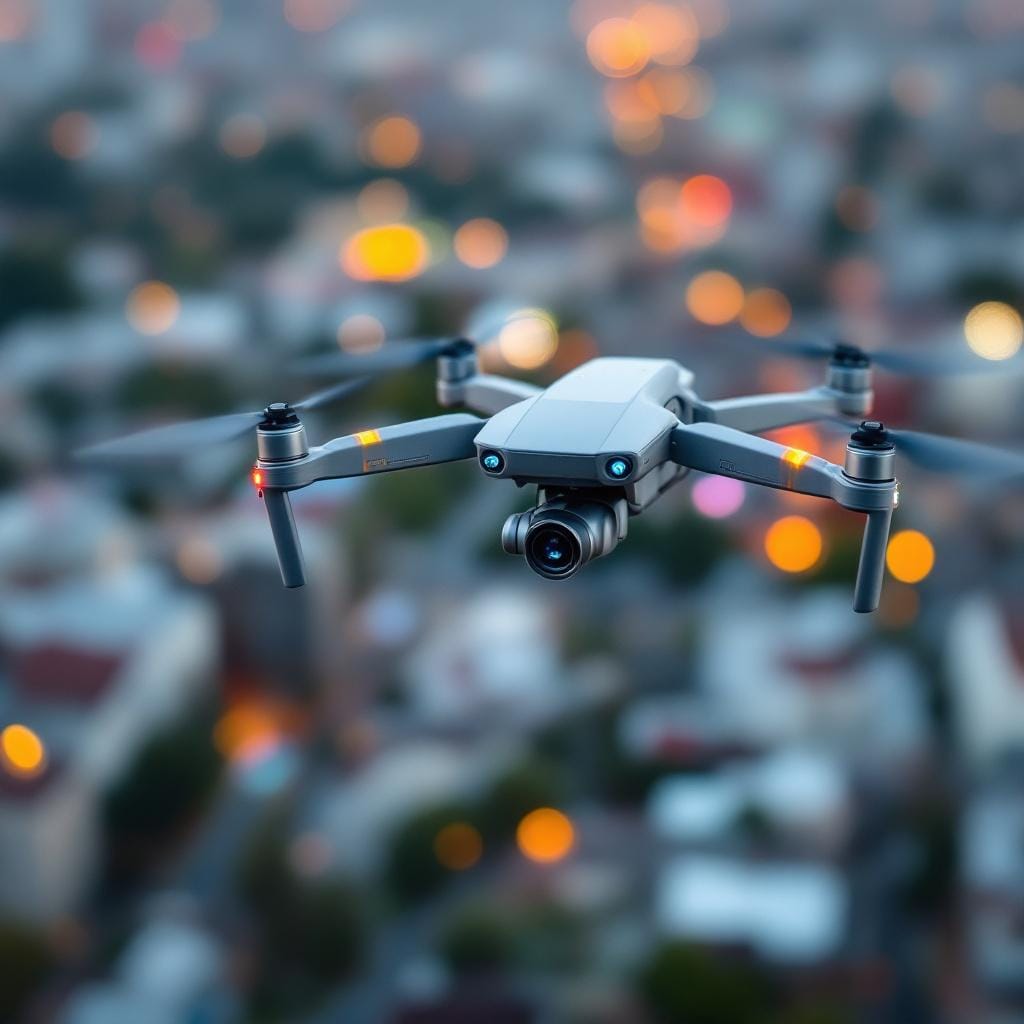The American Civil Liberties Union has launched a scathing attack on a California local government's drone program, describing it as a "runaway spying operation" that threatens constitutional privacy rights. The legal challenge highlights growing tensions between public safety technology and civil liberties in communities across America.
The Surveillance Controversy Unfolds
The ACLU's complaint centers on what they characterize as unchecked aerial surveillance by local law enforcement agencies using unmanned aircraft systems (UAS). According to court documents, the organization alleges that the drone program operates without adequate oversight, clear policies, or meaningful transparency measures to protect residents' Fourth Amendment rights.
"What we're seeing is surveillance technology deployed with virtually no guardrails," said an ACLU spokesperson in a statement. "This isn't targeted law enforcement—it's mass surveillance of entire communities."
The legal challenge comes as drone usage by local governments has expanded dramatically. Federal Aviation Administration data shows that over 1,500 state and local government entities now operate drone programs, representing a 400% increase since 2016.
Technology Outpacing Oversight
The Scope of Surveillance
The ACLU's complaint details how modern law enforcement drones can capture high-resolution video, track individuals across large areas, and store footage for extended periods. Advanced models can:
- Monitor areas up to 25 square miles simultaneously
- Capture facial recognition-quality images from 1,000 feet
- Operate continuously for up to 24 hours
- Store terabytes of surveillance data
These capabilities far exceed traditional patrol methods, creating what privacy advocates describe as an "eye in the sky" that can monitor citizens' daily activities without their knowledge or consent.
Policy Gaps and Legal Concerns
The case highlights a broader issue facing communities nationwide: the rapid adoption of surveillance technology without corresponding privacy protections. Many local governments have deployed drone programs under existing aviation or general technology policies, rather than creating specific frameworks for aerial surveillance.
Key concerns raised by the ACLU include:
- Lack of warrant requirements for routine surveillance flights
- Indefinite data retention policies allowing permanent storage of citizen footage
- Mission creep from emergency response to general law enforcement
- Absence of public input in program development and oversight
National Implications and Precedents
This California case reflects a nationwide pattern of civil liberties organizations challenging local surveillance programs. Similar disputes have emerged in cities from Baltimore to Phoenix, where police departments have faced lawsuits over aerial surveillance initiatives.
The legal precedent could significantly impact how local governments implement drone programs. Courts have increasingly scrutinized surveillance technologies, with several recent decisions requiring warrants for extended aerial monitoring and limiting data retention periods.
Constitutional Considerations
The Fourth Amendment's protection against unreasonable searches traditionally applied to physical spaces and property. However, drone surveillance complicates this framework by enabling persistent monitoring of public spaces and private property from the air.
Legal experts note that while individuals have limited privacy expectations in public spaces, prolonged aerial surveillance can reveal intimate details about daily routines, associations, and activities—information traditionally protected by constitutional privacy rights.
Community Response and Accountability
Local residents have expressed mixed reactions to the drone program. While some support enhanced public safety capabilities, others worry about the implications for privacy and civil liberties.
"I want to feel safe in my community, but not at the expense of living under constant surveillance," said one resident at a recent city council meeting.
The controversy has prompted calls for stronger accountability measures, including:
- Public oversight committees to review drone operations
- Regular audits of surveillance data usage and retention
- Clear policies defining appropriate drone deployment scenarios
- Community notification systems for surveillance activities
Looking Forward: Balancing Safety and Privacy
The ACLU's challenge represents a critical test case for how communities can harness beneficial surveillance technologies while preserving constitutional rights. As drone capabilities continue advancing, the need for comprehensive privacy frameworks becomes increasingly urgent.
The outcome of this legal battle will likely influence how hundreds of other local governments approach drone surveillance programs. Success for the ACLU could establish important precedents requiring warrant protections, data limitations, and community oversight for aerial surveillance operations.
For now, the case serves as a stark reminder that technological capabilities must be balanced against constitutional protections. As communities nationwide grapple with similar decisions, the California controversy offers valuable lessons about the importance of proactive privacy safeguards in the digital age.
The fundamental question remains: how can local governments leverage powerful surveillance tools for legitimate public safety purposes without creating the "runaway spying operations" that civil liberties advocates fear?
